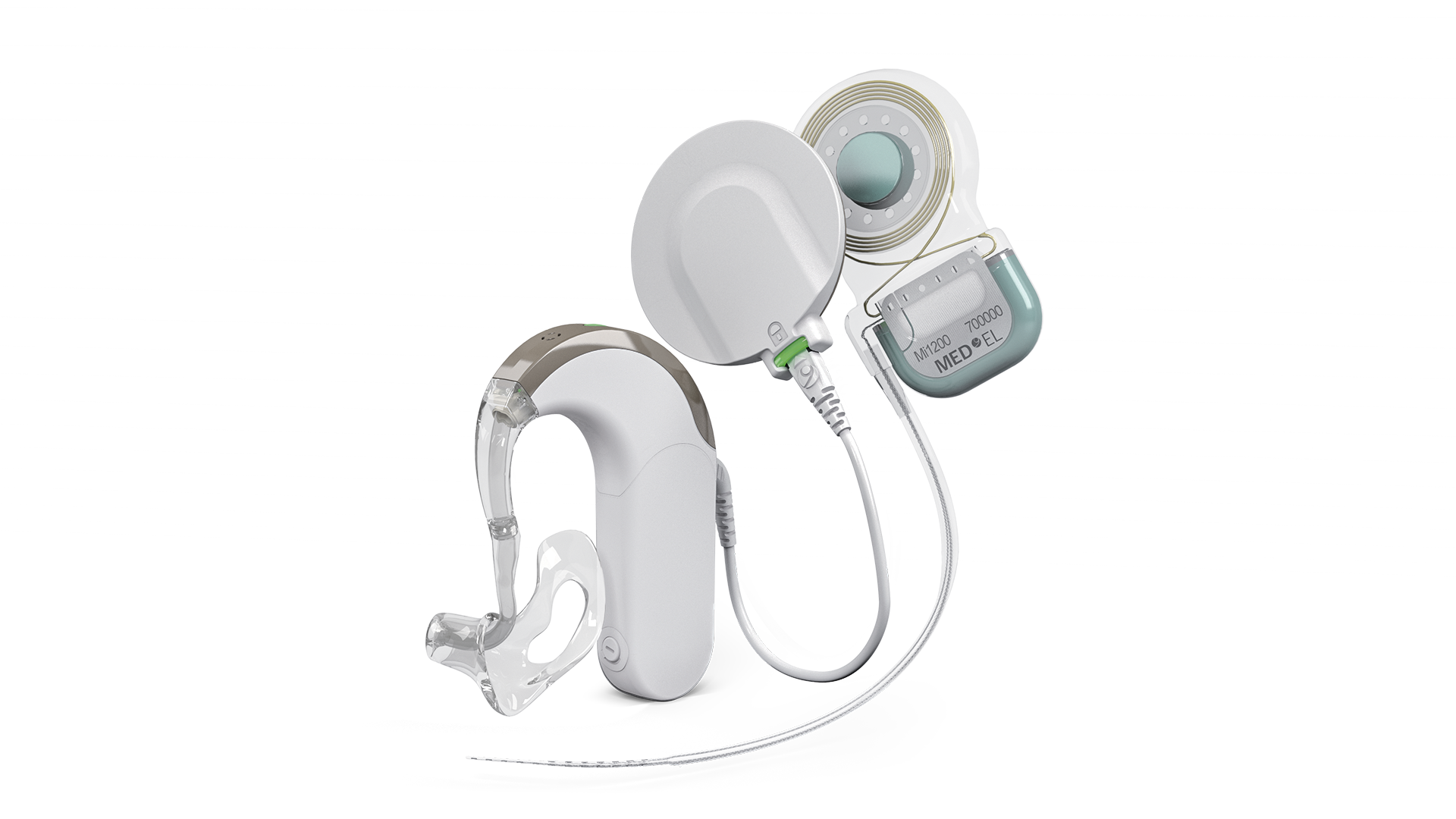Question
Can you provide an overview of the clinical trial for the MED-EL Electric-Acoustic Stimulation (EAS) Cochlear Implant System that demonstrated significant improvements in performance with EAS compared to pre-operative results with hearing aids?
Answer
FDA approval for the MED-EL Electric-Acoustic Stimulation (EAS) Cochlear Implant System was recently granted by the FDA based on MED-EL’s results from a clinical trial with 73 participants from 14 investigative sites across the United States. The purpose of the clinical trial was to demonstrate that the EAS System would be safe and effective to use in individuals meeting the defined candidacy criteria (residual low-frequency hearing with severe to profound hearing loss in the high frequencies and speech understanding scores of 60% or less on words in quiet). Of the 73 participants who were enrolled in the clinical trial and implanted with the EAS device, 67 participants were followed through 12 months post-operatively. These 67 individuals were tested on speech understanding measures both in quiet (Consonant-Nucleus-Consonant, CNC words) and in noise (City University of New York, CUNY sentences). Participants also completed questionnaires assessing self-perceived benefit and satisfaction with the EAS device.

At 12 months post-operatively, scores on CNC words improved on average 37 percentage points, from 30% correct at the pre-operative interval to 67% correct at 12 months post-operatively with EAS. For CUNY sentences in noise, scores improved on average 42 percentage points, from 31% correct at the pre-operative interval to 73% correct at 12 months post-operatively with EAS. In the EAS condition, 97% of the 67 participants completing testing at 12 months performed similarly to or better than their preoperative performance on CNC words in quiet, while 94% performed similarly to or better than their pre-operative score on CUNY sentences in noise.
Participants also demonstrated improvements in speech understanding when tested with electric stimulation only. In this condition, individuals demonstrated an 18 percentage point improvement on average for CNC words in quiet, and a 25 percentage point improvement for CUNY sentences in noise. These results demonstrate that even in a worst-case scenario in which a patient loses low-frequency residual hearing, performance with electric stimulation only is improved compared to pre-operative hearing aid performance.
Individuals in the clinical trial also completed two subjective questionnaires: the Abbreviated Profile of Hearing Aid Benefit (APHAB) and Hearing Device Satisfaction Scale (HDSS). On the APHAB, participants demonstrated an average improvement in ease of listening of 30 percentage points. Of the individuals completing the questionnaire at 12 months, 90% demonstrated an improvement with EAS compared to their pre-operative hearing aids. Specifically, in terms of ease of listening in background noise, 92% of participants at 12 months reported an improvement with EAS compared to pre-operative hearing aids. Based on results from the HDSS questionnaire, 86% of participants indicated an improvement in device satisfaction with EAS compared to pre-operative hearing aids.
Overall, these results demonstrate significant improvements in performance with EAS compared to pre-operative results with hearing aids. Individuals in the clinical trial showed benefit with EAS on speech understanding in quiet and in noise, as well as on subjective questionnaires. Overall, 99% of participants demonstrated benefit on at least one performance outcome measure. The results from this clinical trial represent a large pool of individuals from which to conclude that EAS is effective for use in patients with residual low-frequency hearing and severe to profound high-frequency sensorineural hearing loss.
For more information on the MED-EL EAS Cochlear Implant System, visit https://www.medel.com/us/ or the MED-EL Expo on AudiologyOnline.

